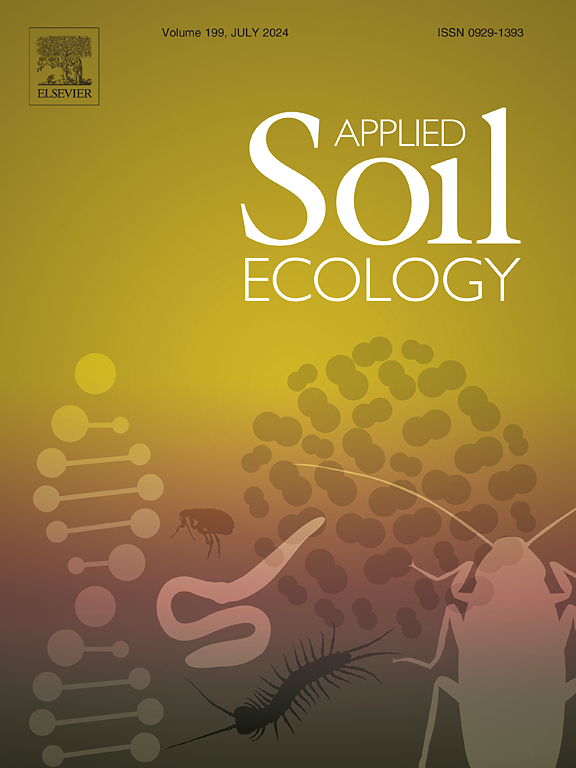The dominance of K-strategy microbes enhances the potential of soil carbon decomposition under long-term warming
IF 4.8
2区 农林科学
Q1 SOIL SCIENCE
引用次数: 0
Abstract
Soil microorganisms play a central role in regulating ecosystem carbon (C) cycle. Changes in soil microbial communities caused by climate warming could have pervasive impact on terrestrial ecosystem C cycle. However, how soil microbial community, a key player in C cycle in subtropical forests, responds to long-term warming is poorly characterized. We conducted a long-term (6-year) soil warming experiment in a subtropical forest to examine the response of microbial community structure, C-associated metabolic function, and respiration to two levels of soil warming (+2 °C and +5 °C). Both bacterial and fungal alpha-diversity declined under warming treatments. The increased microbial ratio of K- to r-strategists suggests that warming promoted the dominance of K-strategy microbes. C-degradation genes abundance and associated enzyme activities increased by soil warming. Moreover, warming decreased soil organic C content and increased soil microbial respiration under both warming levels. Our results indicate that future global warming can accelerate soil C decomposition in subtropical forests through altering the structure of microbial communities and promoting the C-associated metabolic function.
钾策略微生物的优势增强了长期变暖条件下土壤碳分解的潜力
土壤微生物在调节生态系统碳循环中起着核心作用。气候变暖引起的土壤微生物群落变化可能对陆地生态系统C循环产生普遍影响。然而,作为亚热带森林C循环的关键参与者,土壤微生物群落如何对长期变暖做出反应尚不清楚。在亚热带森林进行了长期(6年)土壤增温实验,研究了土壤增温水平(+2°C和+5°C)对微生物群落结构、碳相关代谢功能和呼吸的响应。增温处理下细菌和真菌α多样性均下降。K策略微生物与r策略微生物比例的增加表明,变暖促进了K策略微生物的优势地位。土壤变暖增加了碳降解基因的丰度和相关酶的活性。此外,增温降低了土壤有机碳含量,增加了土壤微生物呼吸。研究结果表明,未来全球变暖可能通过改变亚热带森林土壤微生物群落结构和促进碳代谢功能来加速土壤碳的分解。
本文章由计算机程序翻译,如有差异,请以英文原文为准。
求助全文
约1分钟内获得全文
求助全文
来源期刊

Applied Soil Ecology
农林科学-土壤科学
CiteScore
9.70
自引率
4.20%
发文量
363
审稿时长
5.3 months
期刊介绍:
Applied Soil Ecology addresses the role of soil organisms and their interactions in relation to: sustainability and productivity, nutrient cycling and other soil processes, the maintenance of soil functions, the impact of human activities on soil ecosystems and bio(techno)logical control of soil-inhabiting pests, diseases and weeds.
 求助内容:
求助内容: 应助结果提醒方式:
应助结果提醒方式:


